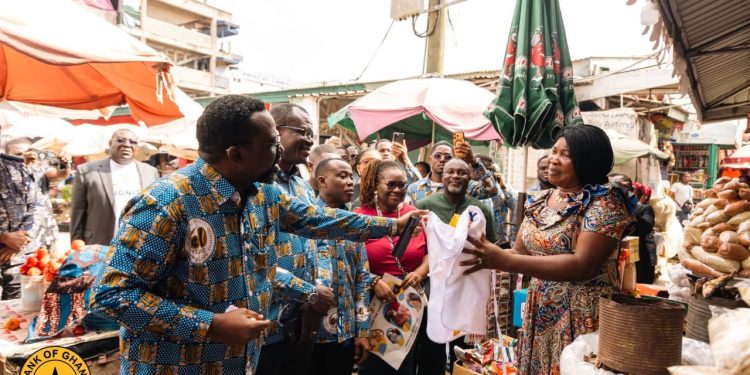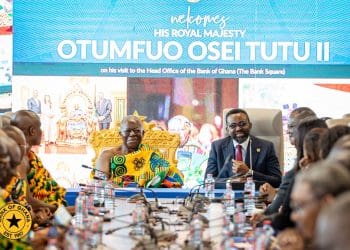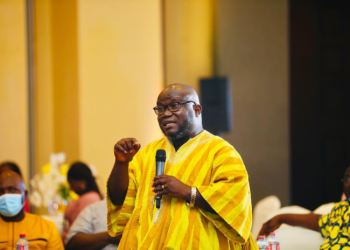The Governor of the Bank of Ghana (BoG), Dr Johnson Asiama, led a team of officials to Makola Market in Accra on Friday, November 21, 2025, to sensitise traders as part of efforts to strengthen public confidence in the national currency and deepen financial education.
The Deputy Governor, Dr Zakari Mumuni, and staff from the bank accompanied him.
During the outreach, Dr Asiama interacted with traders, listening to their concerns and discussing the day-to-day realities of their businesses.
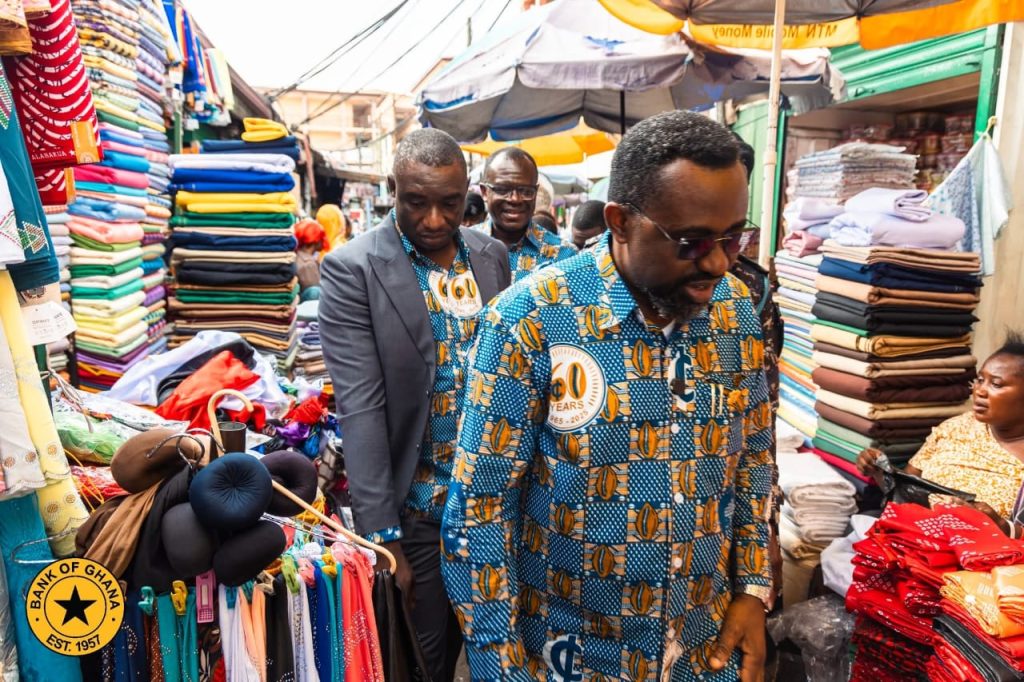
He emphasised the importance of proper handling of Ghana’s currency notes, highlighting the need to preserve their quality and longevity.
He urged traders and the general public to treat banknotes with care, stressing: “Do not squeeze the cedi, do not crumple the cedi, do not write on it, and always keep your money in a purse, wallet, or apron.”
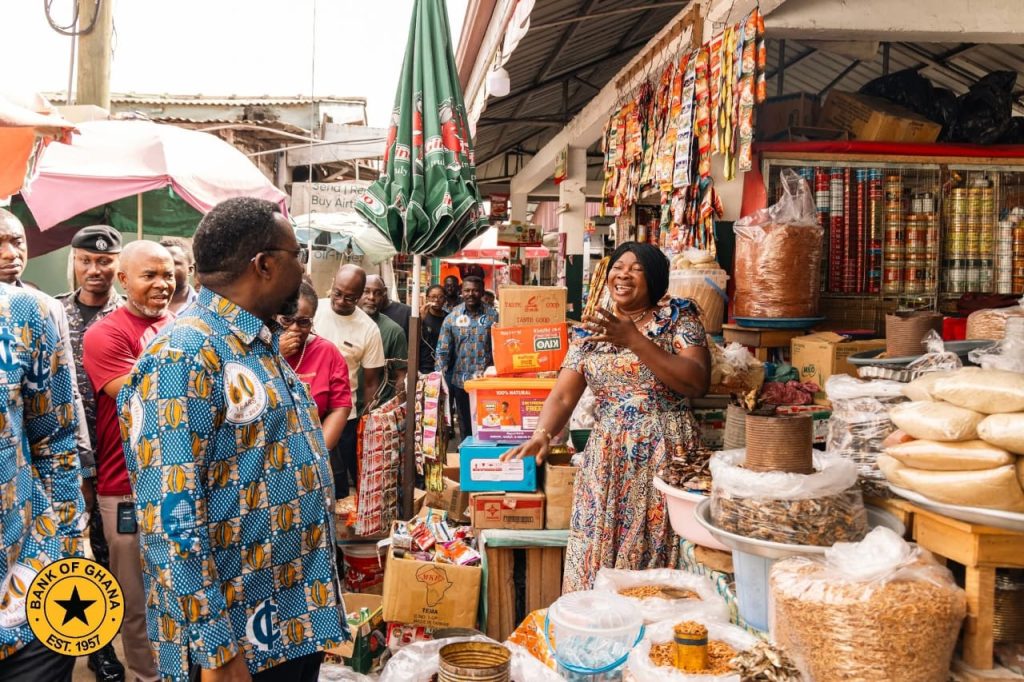
According to the Governor, poor handling of banknotes leads to faster wear and tear, ultimately increasing the cost of printing new notes.
By cultivating better habits, he said, Ghanaians contribute directly to maintaining a clean and durable currency.

The engagement formed part of activities under the Cedi@60 campaign, an educational initiative celebrating the heritage of Ghana’s currency while encouraging responsible use.
Last month, the Central Bank launched the “Cedi@60” initiative — a year-long national engagement commemorating six decades of the country’s currency, the Cedi.
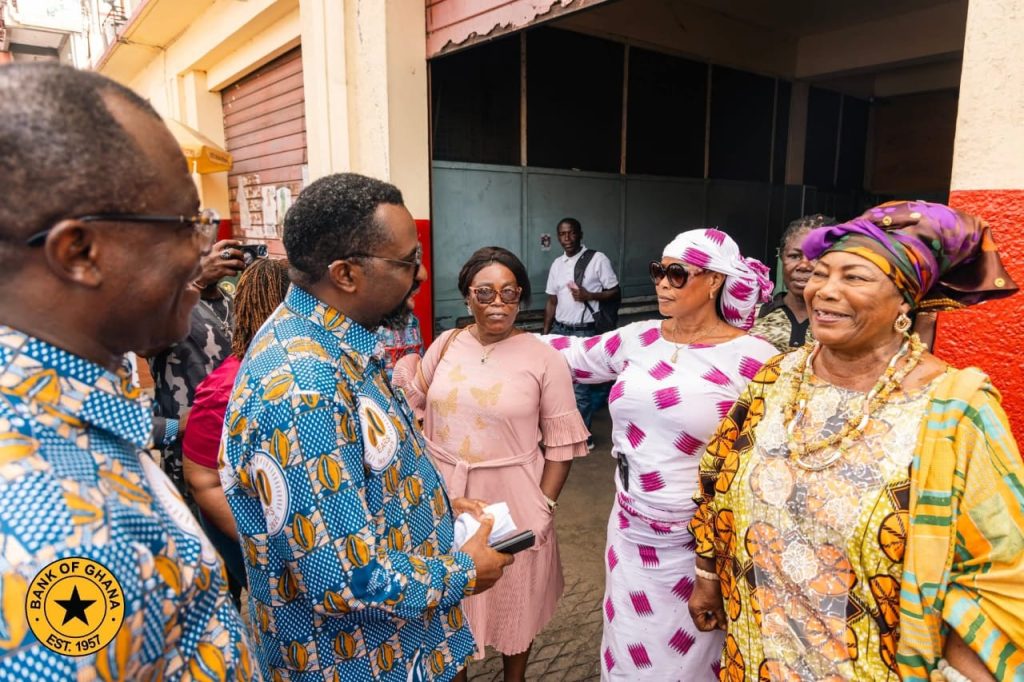
The programme aims to reconnect Ghanaians with the historical, economic, and cultural significance of the Cedi while promoting public education and dialogue on monetary sovereignty.
 In July 1965, Ghana introduced its own currency — the Cedi — marking a significant milestone in the nation’s economic sovereignty.
In July 1965, Ghana introduced its own currency — the Cedi — marking a significant milestone in the nation’s economic sovereignty.
Sixty years later, the Ghana Cedi stands as both a symbol of national pride and a reflection of the country’s complex economic journey.
As the Cedi turns 60, it is worth revisiting its origins, evolution, and what the future holds for Ghana’s monetary landscape.
The introduction of the Cedi in 1965 replaced the Ghana Pound, which had been in circulation since independence in 1957.

